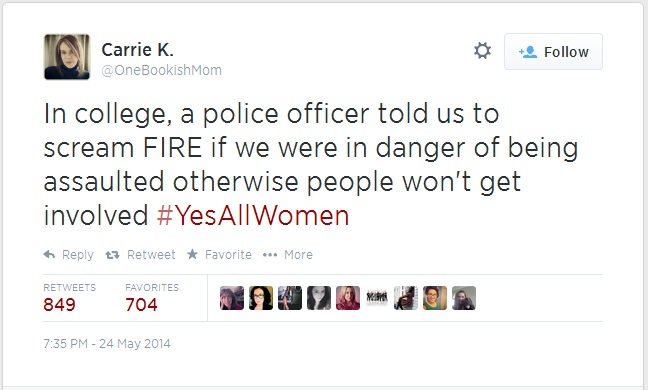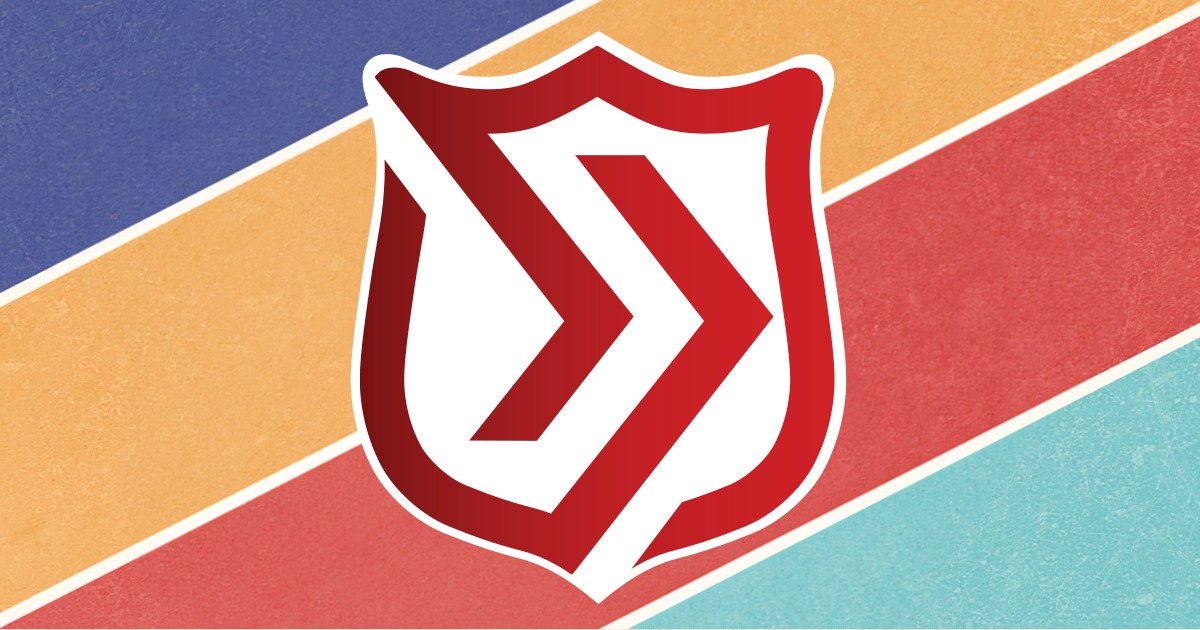Before the assaults, Rodger posted a series of videos on YouTube and wrote a lengthy autobiographical “manifesto,” in which he states his hatred for all women and describes his frustration with not being able to find a girlfriend. In one of the videos, he says, “I don't know why you girls aren't attracted to me, but I will punish you all for it. It's an injustice, a crime.”
Rodger's misogyny, though extreme, struck a chord with many women, who began sharing their own experiences with misogyny on Twitter and Facebook. They used the hashtag #YesAllWomen, to show that though not all men act this way, all women experience misogyny or sexism at some point in their lives.
Over the next several days, the hashtag was used more than 1.2 million times to share stories of harassment, abuse—even rape—and show solidarity with women who had experienced these things. Some tweets included:
#yesallwomen because “I have a boyfriend” is more likely to get a guy to back off than “no”, because they respect other men more than women
— Ali ☮ (@alitomashek) May 30, 2014
In college, we'd regularly find girls who had been roofie'd and left passed out in the parking lot next to our dorm. REGULARLY. #YesAllWomen
— jennifer laughran (@literaticat) May 25, 2014
#yesallwomen because in 9th grade gym class the girls learned self defense while the boys played basketball
— ariel lebeau (@arielhatesyou) May 25, 2014
Well-known Christian author and blogger Rachel Held Evans weighed in with her own tweet:
Because the messages I get from women whose abuse was justified as "biblical submission" stopped surprising me 2 years ago. #YesAllWomen
— Rachel Held Evans (@rachelheldevans) May 25, 2014
How common is sexual assault? Statistics Canada has found that one in four girls and one in eight boys have been sexually abused by the time they are 18. Another recent Statistics Canada survey recorded more than half a million incidents in one year, but the vast majority go unreported. When asked why they did not tell the police about the sexual assault, 58 percent of victims said that they did not report it because it was not important enough.
The combination of these statistics is shocking. And that's why a social media movement like #YesAllWomen is significant: it shows how widespread such incidents are, it exposes the attitudes that make sexual assault common, and it says, “This is important.” As one tweeter wrote, “My husband didn't 'get it' until he spent half an hour on the [#YesAllWomen] feed. Then he looked ashen. 'I had no idea.' #YesAllWomen.”
The conversation sparked by the hashtag is important to both men and women, renewing our compassion for victims and reminding us to live God's love and show others to do the same. As one man tweeted, “Started reading the #YesAllWomen tweets because I've got a daughter, but now I see I should be reading them because I've got two sons.”










Leave a Comment